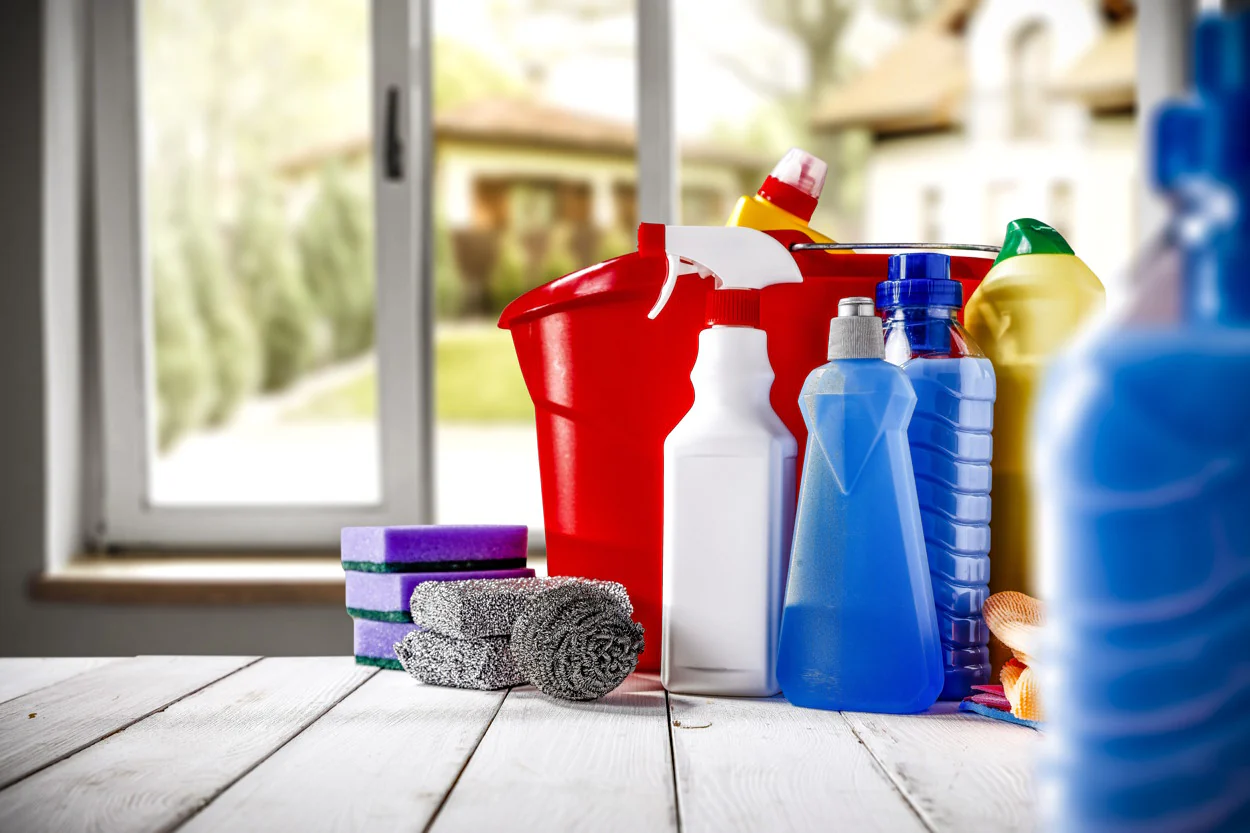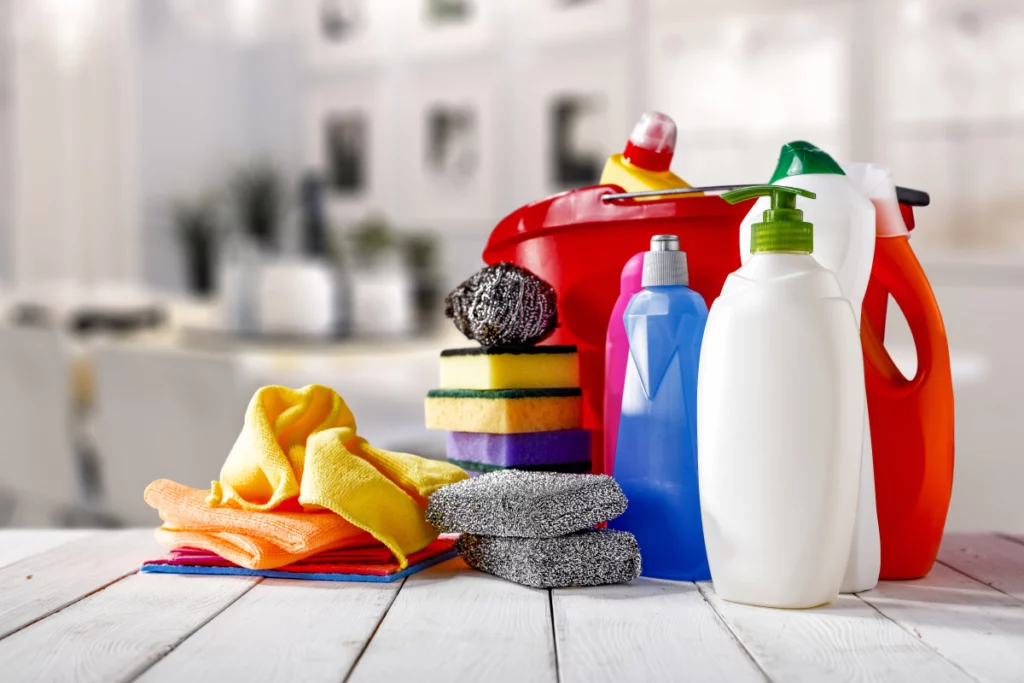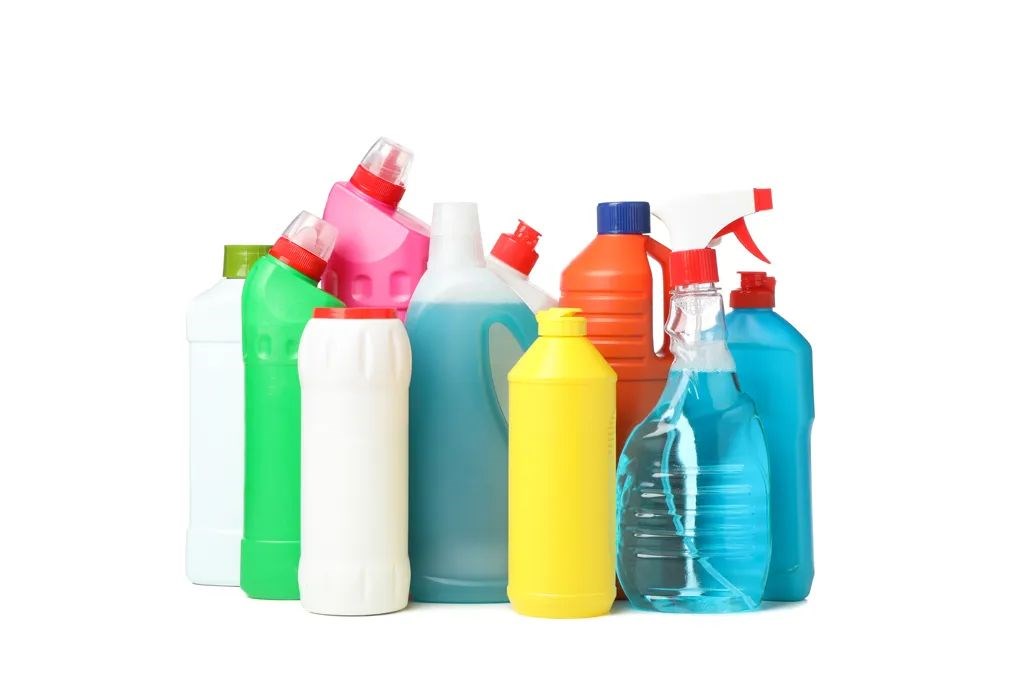
How To Choose The Right Gn Container Material: Stainless Steel, Plastic, Or Polycarbonate?
Choosing the right GN container material is essential for efficient and smooth food service. This guide simplifies the decision, providing...

Get 20€ off on your first order!
Looking for the perfect degreaser? This guide simplifies the choice between solvent-based and water-based options, helping you find the best fit for your cleaning tasks. Whether you need heavy-duty power or an eco-friendly everyday solution, we provide clear insights and practical advice to ensure success.
Plus, once you’ve chosen the right degreaser, we’ll guide you through your next cleaning challenge with expert tips and recommendations for complementary products. Let’s make cleaning easier and more effective together!
For a more comprehensive look at degreasers, refer to our main article, “Degreasers: Everything You Need To Know”.

Solvent-based degreasers rely on chemical solvents to break down oils, grease, and stubborn residues. These products are often preferred for industrial applications or heavy-duty cleaning tasks due to their effectiveness in removing tough contaminants. In contrast, water-based degreasers use water as their primary solvent, combining surfactants and other biodegradable components to achieve cleaning efficiency while being environmentally friendly and safer for everyday use.
Understanding these foundational differences helps you choose the right product for your needs and ensures optimal cleaning results.
To help you decide, here’s a detailed comparison based on specific industries and applications:
| Feature | Solvent-Based Degreasers | Water-Based Degreasers |
| Primary Use | Heavy industries (e.g., manufacturing, automotive workshops) | Residential cleaning (e.g., kitchens, bathrooms) |
| Specific Industries | Factories, garages, and machinery repair centers | Food service, offices, and healthcare facilities |
| Environmental Impact | May require careful disposal processes to ensure environmental safety. | Eco-friendly; often biodegradable |
| Ease of Use | Requires ventilation and protective gear | Safer; minimal precautions needed |
| Effectiveness on Tough Grease | Removes industrial-grade grease, oil, and tar | Ideal for routine cleaning, grease on countertops |
| Cost | Higher due to industrial-grade formulation | Generally more affordable |
This table highlights specific scenarios, making it easier to identify the most suitable degreaser for your needs.
Solvent cleaners, also called grease removers, excel in heavy-duty cleaning tasks. Their concentrated formulas effectively dissolve:
These products are ideal for environments like garages, workshops, and manufacturing facilities where grease buildup is a significant challenge.
However, they come with certain downsides. Solvent-based degreasers are often less environmentally friendly due to their chemical composition, which can require special disposal methods to comply with EU safety regulations.
Proper ventilation and protective gear enhance safety and ensure comfortable use. Despite these limitations, their cleaning power makes them indispensable for industrial-grade applications.
Water-based degreasers provide a safer, eco-conscious alternative. They are particularly suitable for:
Water-based solutions minimize odors and vapors, creating a pleasant and safe environment, especially in spaces with limited ventilation.
They are easier to rinse off, leaving no residue, and their biodegradable nature makes them an environmentally responsible choice. For extremely stubborn grime, consider pairing with specialized cleaning techniques or tools.
Opt for solvent-based degreasers if your cleaning tasks involve:
For example, industrial cleansers like these are often used in factories or auto shops. Explore our Industrial Cleansers Buying Guide for more insights into selecting heavy-duty cleaning products.
Choose water-based degreasers when:
Water-based options are also ideal for food-safe surfaces and environments where chemical residue could pose risks. Their versatility makes them a popular choice for homes, offices, and kitchens.
When selecting a degreaser, it’s essential to comply with European Union standards on chemical safety and environmental impact. For example:
Refer to these resources or consult your local regulatory authorities for detailed compliance guidelines to ensure safe and environmentally responsible usage.
Looking for complementary products? Here are some related options:
For additional guidance, check out our buying guides:
We hope this guide has provided valuable insights into selecting the ideal degreaser for your needs, from understanding the differences between solvent-based and water-based options to considering environmental and safety factors. Whether you’re tackling industrial grease or looking for an eco-friendly solution for everyday cleaning, we’re here to help you make informed choices.
Explore our comprehensive range of degreasers on Droppe, featuring trusted brands designed to meet diverse cleaning challenges.
Have questions or need personalized recommendations? Don’t hesitate to reach out—our team is always ready to assist in ensuring your cleaning tasks are safe, efficient, and hassle-free.
– The Droppe Team
Thank you! You've signed up for our newsletter.



















Choosing the right GN container material is essential for efficient and smooth food service. This guide simplifies the decision, providing...

Looking for the right surface cleaners for your home, workplace, or industrial needs? This guide will provide you with all...

Are you looking for effective ways to ensure food safety and maintain compliance with industry standards? In the food industry,...

Choosing the right GN container material is essential for efficient and smooth food service. This guide simplifies the decision, providing...

Looking for the right surface cleaners for your home, workplace, or industrial needs? This guide will provide you with all...

Are you looking for effective ways to ensure food safety and maintain compliance with industry standards? In the food industry,...
Get 10€ off on your first order!
Save 30% by buying directly from brands, and get an extra 10€ off orders over €100
Save 30% by buying directly form brands, and get an extra 10€ off orders over €100